EAGR Research Labs @ UConn (Storrs)

Dr. Nathan Alder, Department of Molecular and Cell Biology
My research interests involve the analysis of the structure, function, and biogenesis of membrane proteins using multiple techniques, primarily fluorescence spectroscopy; mitochondrial protein trafficking and assembly; high-resolution fluorescence-based mapping of membrane proteins and analysis of conformational dynamics.
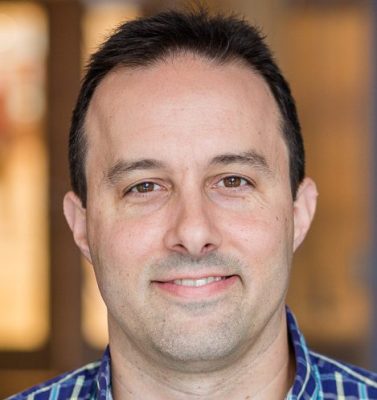
Dr. Ken Campellone, Department of Molecular and Cell Biology
My research goals are to determine (1) how the actin cytoskeleton controls the organization, shape, and movement of cells and their internal components; (2) how cytoskeletal remodeling is altered by infectious microbes and genetic mutations; and (3) how cytoskeletal functions affect biological aging. In the lab, we study cytoskeletal functions in healthy cells, in cancer cells undergoing apoptosis, in genetic disorders involving defective autophagy, and in the cellular hallmarks of aging including senescence. Our experiments are aimed at understanding basic biological mechanisms that can be translated into clinical advances in the future.
Dr. Campellone's Website | Dr. Campellone's Email

Dr. Leighton Core, Department of Molecular and Cell Biology
My lab is interested in how changes in RNA transcription and processing drive changes or maintenance of cellular states during cellular responses such as development or disease progression. Towards this goal, we primarily apply genomic techniques and bioinformatics to reveal the full transcriptional ‘signatures’ of various cell types as well as uncover the fundamental mechanisms of signaling and transcription that underly them. visiting undergrads can gain experience in molecular techniques such as CRISPR genome editing, western blots, RT-qPCR, and molecular cloning as well as bioinformatics methods for analyzing functional genomics data from various genomic assays (ChIP-seq, CUT&RUN, ATAC-seq, PRO-seq).

Dr. Jelena Erceg, Department of Molecular and Cell Biology
Our interdisciplinary research lies at the intersection of genomics, genetics, developmental biology, and evolution. It involves multi-scale genome organization and gene regulation in multicellular diploid organisms using genomic and single-cell transformative imaging approaches. We are interested in understanding how packaging and functional regulation of genomes are established and inherited, and how dysfunctional genome integrity affects cell fate. If this sounds interesting to you, please feel free to email Jelena and we can discuss research opportunities.
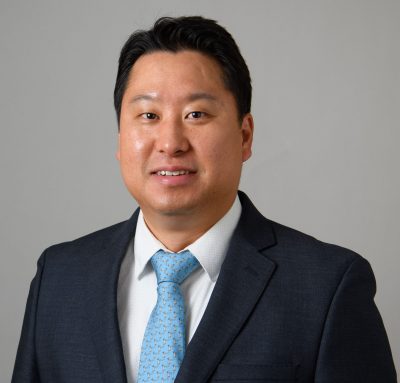
Dr. Oh Sung Kwon, Department of Kinesiology
The research interests of Dr. Kwon's lab encompass an integrative approach to studying the function of vascular and skeletal muscle in both animal and human models. Specifically, our focus is on identifying the roles of oxidative stress and mitochondrial dysfunction in influencing skeletal muscle and vasculature in the context of aging and age-related diseases. To conduct mechanistic studies, our lab employs a wide array of techniques including permeablized mitochondrial respiration, Isolated vessel pressure myography, electron paramagnetic resonance spectroscopy, ultrasound doppler, as well as a variety of molecular and cellular biology techniques. The overarching objective is to attain a comprehensive understanding of muscle, vascular, and pathophysiology.
Our current clinical trial aims to assess the effects of the mitochondria-targeted antioxidant, MitoQ supplementation, in older adults and frail older adults experiencing physical and/or cognitive dysfunction.

Dr. Ji-Young Lee, Department of Nutritional Science
Lee’s research focuses on identifying molecular mediators involved in energy metabolism and inflammatory/fibrogenic signaling pathways; and how dietary factors, such as blue-green algae, berries, carotenoids, and NAD precursors, play regulatory roles in the pathogenesis of non-alcoholic fatty disease and alcoholic hepatitis using molecular techniques and bioenergetics tools in cell and animal models. Also, her Nutriprevention of Obesity, Inflammation, and Liver Disease (NP-OILD) lab uses cell type-specific deletion of class II histone deacetylases, including histone deacetylase 4 and 9, to determine their role in energy metabolism and inflammatory/fibrogenic signaling pathways in the setting of obesity or alcohol consumption.

Dr. Natale Sciolino, Department of Physiology & Neurobiology
I started my position as an Assistant Professor in the Department of Physiology and Neurobiology at the University of Connecticut in January 2021, leading the Neural Circuits in Motivated Behavior research group. The laboratory’s current research focuses on understanding how central norepinephrine (NE) signaling regulates motivated behaviors, including the pursuit of reward and the avoidance of danger. Specifically, our research aims to identify the NE circuits and receptors involved in behaviors, such as feeding and responses to threat. Because behavior is strongly influenced by internal states (e.g., hunger, stress, arousal) as well as external sensory stimuli (e.g., taste, sound), we also aim to determine the influence of NE on these integrative functions of the brain that shape motivated behaviors. Our ultimate goal is to uncover the neuromodulatory basis of neuropsychiatric and feeding disorders. We accomplish these goals using a variety of techniques, including mouse models, in vivo calcium imaging, neurotransmitter sensing, optogenetics, chemogenetics, viral genetic strategies, and behavioral approaches—to understand how NE influences motivational states.
EAGR Research Labs @ UConn (Farmington)
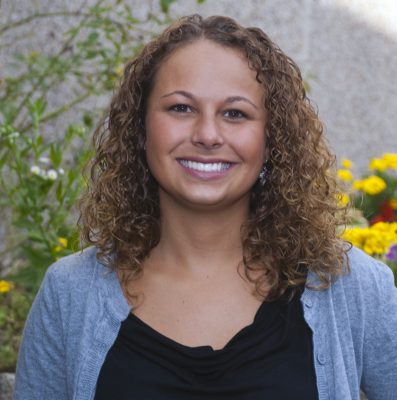
Dr. Jenna Bartley, Center on Aging
Dr. Bartley studies translational research into human aging with a focus on how immune responses and physical function decline as we get older. Her multidisciplinary research aims to uncover common pathways among the aging process and to develop potential interventions to prevent age-related declines in immune responses and help older adults maintain their independence into late life. Current research projects in her lab include the following: 1) impact of senolytic drugs on flu vaccine responses in aged mice, 2) impact of metformin on flu vaccine responses in aged mice and T cell immunometabolism, and 3) altered immunometabolism with aging.

Dr. Breno Diniz, Department of Psychiatry
Dr. Diniz lab uses a geroscience-focused approach to understand the biological mechanisms of major depression in older adults and how such abnormalities can help identify older adults at higher risk of frailty, physical disability, and dementia. His lab has focused particularly on 2 primary hallmarks of biological aging: cellular senescence and mitochondrial dysfunction. His lab uses multiple wet lab research techniques like proteomics, transcriptomics, and flow cytometry, as well as harness the power of large dataset and epidemiological studies to address relevant to aging and mental health. We have many opportunities for undergraduate students to get involved in our lab, including active participation in laboratory experiments and data analysis under the supervision of a more senior student or investigator.

Dr. Xiaoyan Guo, Department of Genetics and Genome Sciences
My lab primarily focuses on unraveling the intricate molecular and cellular mechanisms that govern mitochondrial stress response pathways. Mitochondria, as essential organelles in eukaryotic cells, are vulnerable to damage from both internal and external stressors. The inability to maintain mitochondrial health is associated with the onset of mitochondrial diseases, aging, and age-related disorders such as Parkinson’s disease. To investigate these pathways, my lab employs CRISPR-based functional genomics along with molecular, cellular, and biochemical approaches to decode the complex network human cells use to respond to mitochondrial dysfunction.
Undergraduate researchers in the lab will receive comprehensive training in molecular cloning, tissue culture, flow cytometry, CRISPR engineering, and mitochondrial assays to elucidate the mitochondrial stress response in human cells.

Dr. Laura Haynes, Department of Immunology
Aging has dramatic impacts on all aspects of the response to influenza infection. We are using both human and mouse models to study this. Some of the topics that we are interested in are:
- How aging impacts the lung response to influenza infection, focusing on the adaptive immune response.
- The role of senescent cells in the immune response to influenza infection.
- How aging impacts the skeletal muscle response to influenza infection.
- How aging reduces resiliency following influenza infection.
- How aging impacts the transcriptomics of the response to influenza vaccination.

Dr. Marja Hurley, Medicine and Orthopaedics
The Hurley Lab examines molecular mechanisms by which members of the fibroblast growth factor (FGFs) and fibroblast growth factor receptor (FGFR) families, regulate, bone remodeling and disorders of bone, skeletal muscle/bone crosstalk and joint homeostasis. Specifically, FGF2 global and conditional knockout and FGF2 isoform transgenic mice are utilized in loss and gain of function experiments to elucidate the role of FGF2 in disorders of bone including osteoporosis, fracture healing, osteoarthritis as well skeletal muscle aging
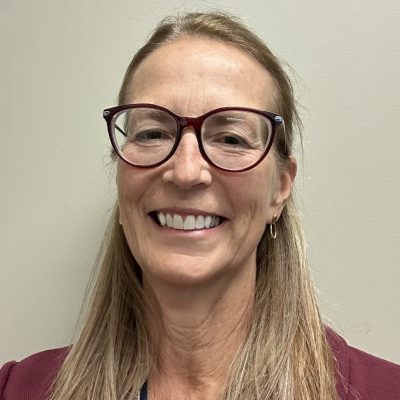
Dr. Liisa Kuhn, Department of Biomedical Engineering
The goal of the Kuhn lab is to improve bone healing outcomes in elderly women. We use animal models of bone injuries to test for effects after localized delivery of anti-senescence drugs. During the summer, an undergraduate would participate in the lab’s research by looking at differences in gene expression due to aging in bone, primary and induced-senescent cells.
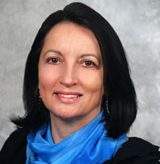
Dr. Blanka Rogina, Department of Genetics and Genome Sciences
The primary interest of our research is the investigation of the basic biology of aging, including the molecular genetic determinants of aging and longevity. Over the past few years our work has concentrated on understanding some of the mechanisms that regulate gene expression during adult life in Drosophila melanogaster. Currently we are involved in screening for genes that are involved in life span determination. Another interest is to investigate the biological deterinants of female longevity. Female life spans dependents on reproductive status. It is our goal to study the contribution reproduction and fertility make toward female longevity.